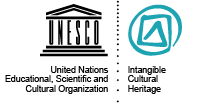Wayuu normative system, applied by the Pütchipü’üi (palabrero)
Inscribed in 2010 (5.COM) on the Representative List of the Intangible Cultural Heritage of Humanity
Country(ies): Colombia
Identification
Description

- Wayuu normative system, applied by the Pütchipü’üi (palabrero)
- © 2009 by Jayariyu
The Wayuu community inhabits the Guajira Peninsula straddling Colombia and Venezuela. Its legislative system comprises a body of principles, procedures and rites that govern the social and spiritual conduct of the community. The system, inspired by principles of reparation and compensation, is applied by the local moral authorities, the Pütchipü’üi or palabreros (orators), who are experts in resolving conflicts and disputes between the local matrilineal clans. When problems arise, the authority of the Pütchipü’üi is sought by both parties in a dispute, the offender and those offended against. After analysing the situation, the Pütchipü’üi informs the authorities concerned of his intention to resolve the conflict peacefully. In the event that the word – Pütchikalü – is accepted, dialogue is established, wherein the Pütchipü’üi acts with diplomacy, caution and intelligence. The compensation system employs symbolism, represented primarily by the offering of necklaces made of precious stones or sacrifices of cattle, sheep and goats. Even the most serious crimes are compensated, compensations being offered at special events to which the disputing families are invited to re-establish social harmony through reconciliation. The Pütchipü’üi acquires his role by virtue of being a maternal uncle – an honoured role in the Wayuu system of matrilineal clans – and by possessing a character grounded in ethics and morals.
Documents
- Nomination form: English|French
- Consent of communities: Spanish/French
Decision 5.COM 6.9
The Committee (…) decides that [this element] satisfies the criteria for inscription on the Representative List of the Intangible Cultural Heritage of Humanity, as follows:
- R.1: The Wayuu normative system, recognized by its community members as an important element of their heritage, regulates their social life by using words and dialogue as a peaceful means to resolve conflicts; it is orally transmitted from generation to generation and provides a sense of belonging, identity and continuity to its community;
- R.2: Inscription of the element on the Representative List could contribute to promoting intercultural dialogue and enhancing the visibility of traditional systems of conflict resolution;
- R.3: Safeguarding measures have been drawn up with the participation of the Wayuu communities, focusing on strengthening its institutions, fostering its transmission, and continuing research and documentation;
- R.4: The wide participation of Wayuu communities in the nomination process is reflected in the safeguarding measures proposed, and the nomination includes evidence of their free, prior and informed consent;
- R.5: The Wayuu normative system is inscribed in the National Representative List of Cultural Heritage, jointly administered by the Ministry of Culture and the Instituto Colombiano de Antropología e Historia.











